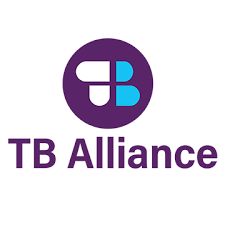Abdulrahman Aliagan with Knowledge Bylanes
Pretomanid, developed by the non-profit TB Alliance, has received EU marketing authorisation in combination regimen with bedaquiline and linezolid in adults with XDR-TB or treatment-intolerant/non-responsive MDR-TB
Pretomanid, a novel compound developed by the non-profit organization TB Alliance, has been granted a conditional marketing authorisation by the European Commission (EC) for treating highly drug-resistant forms of pulmonary tuberculosis (TB).
In a statement made avialble to Time Nigeria by Knowledge Bylanes stated that,
“The new drug was authorised as part of a three-drug, six month, all-oral regimen for the treatment of adults with extensively drug-resistant TB (XDR-TB) or multidrug-resistant TB (MDR-TB) who are treatment-intolerant or non-responsive.
“This regimen provides a new treatment option for patients in the European Union with highly drug-resistant TB infections,” said Mel Spigelman, MD, President and CEO of TB Alliance.”
It added that, “The combination treatment of bedaquiline, pretomanid and linezolid – collectively referred to as the BPaL regimen – was studied in the pivotal trial entitled Nix-TB. The multicenter, open-label trial enrolled 109 adults across three sites in South Africa with XDR-TB as well as treatment-intolerant or non-responsive MDR-TB.2 The Nix-TB trial demonstrated a favourable outcome in 90% of patients, as published in the 5 March, 2020 issue of the New England Journal of Medicine. 11 patients (10%) had an unfavourable outcome and 98 patients (90%; 95% confidence interval, 83 to 95) had a favourable outcome. The primary efficacy endpoint for the study was the incidence of an unfavourable outcome defined as treatment failure (bacteriologic or clinical) or disease relapse through follow-up until 6 months after the end of treatment. Most patients in Nix-TB were treated with six months of the BPaL regimen. For two patients, treatment was extended to nine months.2 The application for this conditional marketing authorisation contains data on 1,168 adults who have received pretomanid in 19 clinical trials that have evaluated the drug’s safety and efficacy.”
According to the statement, “Pretomanid is a new chemical entity and a member of a class of compounds known as nitroimidazooxazines. Developed by TB Alliance since 2002, pretomanid has now received authorisation as an oral tablet formulation as part of the BPaL regimen for the treatment of highly drug-resistant forms of pulmonary TB. It is now indicated for use in a limited and specific population of patients.1 The most common side effects noted with the BPaL regimen are peripheral neuropathy, nausea, anaemia, vomiting, headache, dyspepsia, acne, decreased appetite, increased transaminases and gamma glutamyl transpeptidase, rash, pruritus, abdominal pain, musculoskeletal pain and increased amylase.”
It said, “TB Alliance’s exclusive commercialization partner in Europe is Mylan, a global pharmaceutical company, which will market pretomanid as part of the BPaL regimen.
“Mylan has a longstanding commitment to battling infectious diseases around the world. We look forward to bringing pretomanid to patients throughout Europe and expanding access to this critical treatment as we have done in the U.S. and several rest-of-world markets. The authorisation by the European Commission is another step forward in continuing to advance global access to TB treatments for patients in need,” said Mylan President Rajiv Malik.
The conditional authorisation requires the completion of long-term follow-up of patients in the Nix-TB trial as well as completion of TB Alliance’s ZeNix trial, which is evaluating the safety and efficacy of the BPaL regimen with varying doses and durations of the drug linezolid.
About Tuberculosis
TB is an infectious disease that can be spread from person-to-person through the air. TB, in all forms, must be treated with a combination of drugs; the most drug-sensitive forms of TB require six months of treatment using four anti-TB drugs.5 Treatment of XDR-TB or treatment intolerant/non-responsive MDR-TB has historically been lengthy and complex; most XDR-TB patients are treated with a combination of as many as eight antibiotics, some involving daily injections, for 18 months or longer.6 The most recent World Health Organization (WHO) data indicate treatment success rates of approximately 39 percent for XDR-TB and 56 percent for MDR-TB.6
About TB Alliance
TB Alliance is a not-for-profit organization dedicated to finding faster acting and affordable drug regimens to fight TB. Through innovative science and with partners around the globe, we aim to ensure equitable access to faster, better TB cures that will advance global health and prosperity. TB Alliance operates with support from Australia’s Department of Foreign Affairs and Trade, Bill & Melinda Gates Foundation, Cystic Fibrosis Foundation, European & Developing Countries Clinical Trials Partnership, Germany’s Federal Ministry of Education and Research through KfW, Global Health Innovative Technology Fund, Indonesia Health Fund, Irish Aid, Medical Research Council (United Kingdom), National Institute of Allergy and Infectious Disease, Netherlands Ministry of Foreign Affairs, Rockefeller Foundation, United Kingdom Department for International Development, and the United States Agency for International Development.

